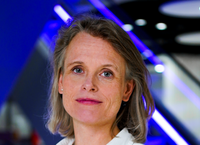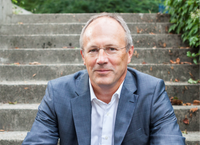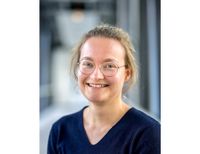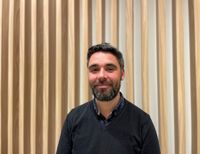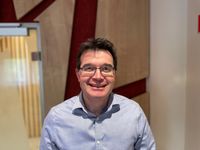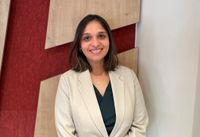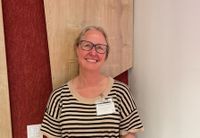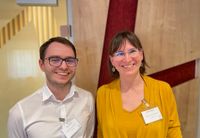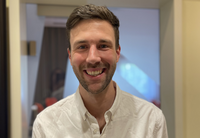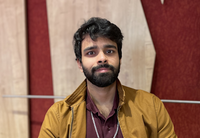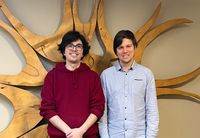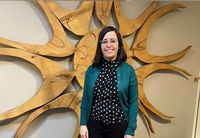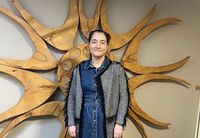Interviews
Leader of WP6 - Loreto Carmona
“One of my mottos is to make the world a better place. That is what drives me”
-
10-07-2024
Just before the kick-off of the conference in Budapest, we interviewed Prof. Loreto Carmona, leader of work package 6, 'Context and Implementation'. In addition to her work for SPIDeRR, Carmona is the research director at the Instituto de Salud Musculoesquelética Musculoskeletal (Inmusc) in Madrid. Carmona: “I was trained as a rheumatologist but haven’t seen patients in many years — I only do research. Inmusc is a small company that researches and assists others in conducting research. We conduct a lot of clinical and qualitative research, and we were invited to handle the implementation part within the SPIDeRR project, which involves bringing all the basic science and other results into clinical practice”.
Leader of SPIDeRR project - Rachel Knevel
“Patient stratification is key; we are not just looking at individual diseases or symptoms, but at the broader spectrum”
-
10-07-2024
Globally, 1.71 billion people, including 100 million within the European Union, suffer from musculoskeletal complaints, with one in three individuals expected to experience these issues in their lifetime. Despite this alarming prevalence, rheumatic and musculoskeletal diseases often remain undervalued by health professionals and the public. While some patients benefit significantly from consulting a rheumatologist, others face delays in diagnosis and treatment. The SPIDeRR project aims to transform musculoskeletal health by delivering innovative tools for diagnosing and treatment, offering renewed hope to millions worldwide.
Collaborator SPIDeRR project - Miklós Szócska
“Health data should not be regarded as an asset of secondary use, instead, as a primary tool to heal”
-
18-07-2024
A paradigm shift to data-driven healthcare is inevitable.
Data will play a central role at all levels of healthcare from decision making to diagnostics, clinical research and public health. It is now widely used in numerous healthcare projects across the European Union to exploit the benefits it can bring.
My goal is to make members of projects like this aware of their role as part of a broader effort that leads to data-driven health care systems.
Leader of WP3 - Luis Rodriguez-Rodriguez
“Seeing different perspectives by connecting with other clinical research groups and those with different mindsets is very enriching"
-
12-08-2024
Dr. Luis Rodriguez-Rodriguez, senior researcher at Instituto de Investigaciones Sanitarias San Carlos (IdISSC) in Madrid and leader of work package 3, focused on modular diagnostics, has a diverse background. “I am a rheumatologist and have been engaged in research for the past 15 years. My research has included basic laboratory work focused on genetics, as well as clinical research primarily aimed at improving the quality of life and addressing the disability associated with musculoskeletal diseases.”
Patient participant: Karin Stratingh
What is truly important to 'the patient'?
-
16-09-2024
“I had just started my medical studies in Groningen. As a side job, I worked at a bakery. Studying and working was sometimes tough, but otherwise, I felt good. I had always been healthy during my youth,” Karin recalls. But suddenly, the student started experiencing vague pain in her joints. “It happened in attacks; the pain would come and then disappear again. Was I just tired? Overworked? I did visit the general practitioner during that period, but they saw no reason to refer me at that time. I think I continued for another six months. Until suddenly, I was in so much pain and my hands became swollen, that I went back to the doctor.”
Leader of WP4 - Erik van den Akker
“The collaboration between clinicians and researchers, coupled with advanced analytical tools, is immensely gratifying”
-
16-09-2024
Dr. Erik van den Akker leads work package 4, the ‘Rheumatic digital twin’.
As an assistant professor of Computational Biology, he initially conducted research in laboratory settings before transitioning to focus on computational analysis. Presently, he holds positions at both the Leiden University Medical Centre (LUMC) and Delft University of Technology (TU Delft), specializing in pattern recognition.
Leader of WP5 - Arthur Pratt
“SPIDeRR offers valuable insights into leveraging vast datasets for improved healthcare"
-
21-10-2024
In Budapest, we conducted an interview with clinical rheumatologist Dr. Arthur Pratt, the leader of work package 5. He was involved in setting up the early arthritis clinic in Newcastle some years ago. “My ongoing interest is in leveraging insights into the causes and mechanisms of rheumatoid arthritis to improve patient care through faster and more accurate diagnoses and early treatment interventions.”
Leader of WP7: Jyaysi Desai
“Clear communication to avoid misunderstandings is essential in a consortium with diverse expertise”
-
25-11-2024
Work package 7 is about ‘Ethics and legal’ and is led by Dr. Jyaysi Desai, PHD. She works as a project manager in the rheumatology department at the Leiden University Medical Centre (LUMC) with Prof. Rachel Knevel. Originally from India, she completed her master's from King’s College London and did her PhD in immunology from LMU Munich.
Collaborator SPIDeRR project - Miklós Szócska
“Being part of large collaborative projects like SPIDeRR allows us to share and build on good ideas”
-
22-01-2025
During the SPIDeRR conference in Budapest on April 17 and 18, we interviewed immunologist and geneticist Martina Johannesson, PhD. She is involved in various projects within the SPIDeRR consortium and works as a scientific coordinator at the Karolinska Institute, a research-led medical university in Sweden and one of the foremost medical research institutes globally.
Rheumatologist and clinical immunologist: Judit Majnik and PhD student: Ádám Misák
“Any tool that helps optimize patient referral to hospitals could support our work as clinicians considerably”
-
11-02-2025
Judit Majnik and Ádám Misák of Semmelweis University, the Hungarian member of the consortium, cite the international aspect and the complexity of the project as a motive to join. “It is exciting to see how scientists and clinicians of the same field but from different countries work together and also get to learn about their goals”
Project collaborator - Felix Mühlensiepen
“Learning about different healthcare systems has been fascinating, and collaborating with established researchers and observing their scientific work is highly inspiring”
-
03-03-2025
Dr. Felix Mühlensiepen, involved in work package 6, serves as a health services researcher at Brandenburg Medical School. He brings expertise in sociology, public health, and health services research to the SPIDeRR project.
PhD student at TU Delft - Daniyal Selani
“Working with experts from diverse fields in a consortium like SPIDeRR enhances my knowledge and broadens my viewpoint through exposure to varied perspectives and expertise”
-
01-04-2025
We interviewed Daniyal Selani, who has been working as a PhD student at TU Delft on the SPIDeRR project for the past year. He is part of the first work package within the project and works closely with Prof. Rachel Knevel, Prof. Marcel J.T. Reinders, and Dr. Erik van den Akker.
Partners SPIDeRR project – Maxime Raffray and Georgy Gomon
“The most exciting part of this project is collaborating with healthcare systems from different countries. What’s familiar in one country can be very different in another county, creating both challenges and opportunities”
-
11-05-2025
At the SPIDeRR conference in Stockholm, we had the opportunity to conduct a joint interview with Maxime Raffray, postdoctoral researcher at the Clinical Epidemiology Division of the Karolinska Institute, and Georgy Gomon, PhD student at the departments of Rheumatology and Medical Statistics of the Leiden University Medical Centre.
Partner SPIDeRR project – Isabel Castrejón
“The fact that a questionnaire-based tool, using only patient-reported symptoms, was able to accurately identify potential fibromyalgia cases was both impressive and encouraging”
-
12-05-2025
During the SPIDeRR conference in Stockholm, we interviewed Isabel Castrejón, Associate Professor at Complutense University of Madrid, and rheumatologist and clinical researcher at Madrid’s Gregorio Marañón University Hospital. At this hospital, as part of work package 3, she focuses on the implementation of rheumatic disease management.
Partner SPIDeRR project – Estíbaliz Loza
“The feasibility, usability, and acceptability of digital tools like Rheumatic? are currently being tested to support diagnosis, with promising results”
-
12-05-2025
During the annual meeting in Stockholm, we interviewed Dr. Estíbaliz Loza, who is involved in work package 6, ‘Context and Implementation’. While having a background as a clinical rheumatologist, Loza eventually moved into research.
